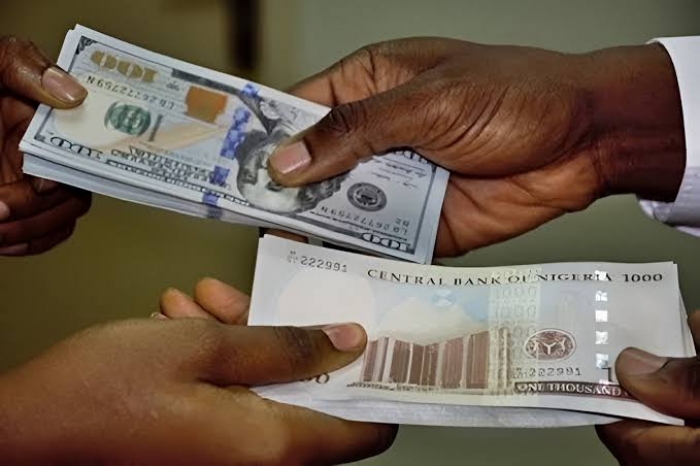On Wednesday, the naira experienced a decline to N1,450 at the parallel segment of the foreign exchange (FX) market. This current rate indicates a 1.4 percent depreciation compared to the N1,430 rate observed on May 6. Currency traders, commonly referred to as bureau de change (BDC) operators, set the buying rate of the dollar at N1,410 and the selling price at N1,450, yielding a profit margin of N40.
Meanwhile, at the official window, the local currency depreciated by 1.98 percent to N1,421.06 on May 8, down from N1,416.57 on May 7. During trading, the dollar fluctuated between a high of N1,440 and a low of N1,335, as reported by data from FMDQ Exchange, the platform overseeing FX trading in Nigeria.
The Central Bank of Nigeria (CBN) revised its directive on the repatriation of export proceeds by international oil companies (IOCs) on May 7. In February, the CBN had imposed limits on the transfer of proceeds from crude exports by IOCs to offshore parent company accounts, as part of measures to stabilize the FX market.
The CBN expressed concern over the impact of these fund transfers on liquidity in the domestic FX market, prompting the need for policy adjustments. As per the updated directive, the initial 50% of repatriated proceeds can be pooled immediately or at a later date as required. Banks are instructed to submit requests for cash pooling, supported by necessary documentation, for approval by the CBN.
Moreover, the remaining 50% balance of repatriated export proceeds can be utilized by IOCs for various financial obligations within Nigeria, including cash calls, domestic loan repayments, and transaction taxes such as the Nigerian Content Development (NCD) levy and education tax. Additionally, IOCs are permitted to sell forex at the FX market using this balance, as outlined by the apex bank.

